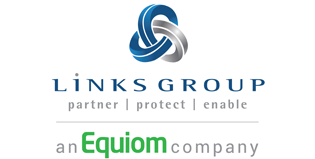In a region where the laws and regulations are different, relatively slim and diverse in comparison to the world’s key global markets, keeping track of any changes is essential in order to update a company’s legal database.
One of the suggested ways to keep up to date with the legal system is for companies’ legal representatives to visit the relevant Ministries to ensure your company is aware of any changes and, as such, enables you to manage the implementation of risk in any business.
However, companies must understand the basic legal requirements of operating in the region where a crime may be defined differently from elsewhere in the world.
Below are some of the questions new companies to the region may ask:
What is a financial crime?
A financial crime or bribery is an offence in the UAE. The concept is generally understood as money laundering, fraud and corruption – everybody is at risk.
Why do we care?
There are aggressive signs from courts that bribery will not be tolerated, by imposed punishment such as fines and a jail term. Legislation only applies to the person accepting the bribe, not the person offering the bribe or facilitating the bribe.
More importantly, corruption impacts markets and drives away foreign direct investment, thus destroying potential opportunities. Therefore, these laws are important to ensure a high standard of transparency internationally.
What do we do to undertake compliance?
Companies should implement a legal risk map and effective internal auditing controls to assist in preventing corruption. It will also be advisable to adopt a proportionate system referring to the size of the business, the sector and the countries in which it conducts business.
Companies also need to commit to an Anti-Bribery and Corruption policy that must be updated on a regular basis.
The company’s legal obligations are –
- National – Anti-bribery and corruption regulations in terms of the Federal Law Act 2 of 2015 pertaining to Commercial Companies.
- Free Zones – US and UK Anti-bribery Acts.
- Assess risk – including but not limited to customers, product, services and location.
The shifting role of the in-house legal counsel
The in-house legal counsel should shift from a “fire-fighting” reaction approach to providing a proactive legally supportive role focusing on avoiding problems rather than resolving them. Predict problems before they occur, from assessing legal risks to non-legal risks as well as the impact on the business. The challenge is to be very close to the business to pre-empt any risk, hence providing more value to the company.
Criteria for ranking compliance risk
- The country’s ranking on transparency on an international level.
- Regulatory certainty in the industry/country in question- to what extent is it implemented?
- Use of 3rd parties to carry out business.
- Doing business with the public sector.
- Is the country subject to sanctions/embargo?
- Amount/use of petty cash.
- Legal training provided to employees and rate of compliance certificate.
How do we manage compliance risk?
- Take the time to understand the business and the company culture.
- Communicate and escalate the risk.
- Take a proportionate approach, considering size of business.
- Review and update compliance and governance policies; and
- Train, train, train!!!


